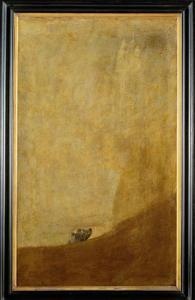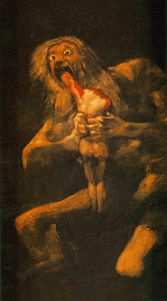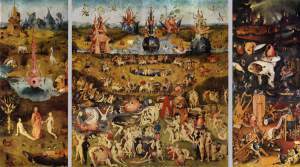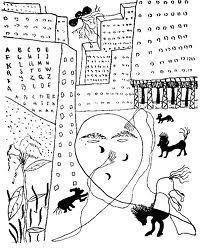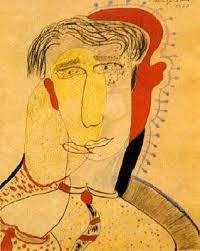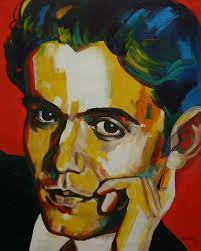Lizzie Eldridge's Blog: Lorca by Candlelight, page 9
February 10, 2015
The Museo del Prado and Duende
 Duende by Lizzie Eldridge (2014); Cover Image ‘The Divide of Reason’ by Damian Ebejer: http://bitly.com/1nDO9Xm
Duende by Lizzie Eldridge (2014); Cover Image ‘The Divide of Reason’ by Damian Ebejer: http://bitly.com/1nDO9Xm
Duende is set in Spain 1900-1936. Early on in the novel, the 2 main characters, Nayo and José, visit the Prado. At this point, Nayo is an art student at the Academia and José is studying philosophy at the Complutense. The year is 1920 and this is their reaction to what they saw (Duende Chapter 3):
Nayo and José had deliberately returned a week before the actual start of their courses. They wanted to get their bearings again and have time to drink coffee in the Plaza del Ángel, the Puerta del Sol, the Plaza de Santa Ana. They wanted to re-acclimatise themselves with the faster pace of Madrid and they also wanted to spend many hours at the Museo del Prado. José had long since made connections between art and philosophy and Nayo had introduced him to things that shed light on ideas he was confronting at university. So the Prado was a valuable resource for both of them.
They always stopped in front of Velázquez’ depiction of Mars, wondering how the God of War appeared harmless, even vulnerable, his military helmet offset by his all too human naked body. The contrast evoked a sense of comedy with the notion that those most feared are merely flesh and blood .
José preferred the stark simplicity of Velázquez’ crucified Christ while Nayo liked the luminous quality of El Greco’s version and the way the gaze of the onlookers lifted the viewer’s eyes upwards to Christ on the cross as he looked sadly down. What he also loved was the strange but unmistakable sense of celebration emanating from what was such a brutal event. 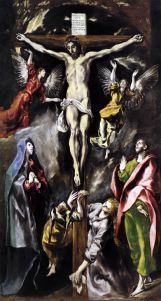
Goya’s work never failed to impress and while The Shootings of May Third took them back to recent horrors across Europe, it was The Dog on the Leash that made Nayo pause. Gradually, his appreciation had rubbed off on José who soon began to see its beauty. It seemed ironic that Goya had been refused entry to the self-same Academia where Nayo was now studying but the art school’s lack of vision hadn’t stopped the artist fulfilling his ambition. If the will is there then nothing can get in the way.
This painting enshrined the kind of abstraction Nayo wanted to achieve and although the painting formed part of Goya’s Pinturas Negras, its radiance didn’t suggest angst but seemed an inescapable glimmer of hope.
Saturn’s Devouring of his Son destabilised optimism and left them shivering. It wasn’t their parents they feared but each other and the pain they may inflict in years to come. Wanton cruelty seemed beyond their capacity but the lessons of the summer were still being absorbed. Perhaps the grotesque always lingers on the periphery of purity. Perfection has its flipside and thus the path they walked was necessarily precarious.
They moved to Bosch and his garden of earthly delights. They immersed themselves in the bright colours, the busy detailed scenes, before shuddering beneath the movement in the triptych from Eden to Hades, a hell in which the face of the artist suddenly peeks through.
Nayo took José’s hand as soon as they left the museum. He needed to feel wanted and the squeeze he got in return was enough. Disaster can strike when you’re least expecting it but right now, nothing could disrupt their love, their trust, their infallible belief in each other.
January 31, 2015
Book Review: The Tragedy of Fidel Castro by Joao Cerqueira
Right from the start, the author of The Tragedy of Fidel Castro gives us a wink by distancing his fictional characters from their exceptionally famous namesakes. Christ, God, JFK bear no resemblance to their well-known counterparts. Only Fidel Castro ‘has some similarities with the revolutionary leader and dictator.’
A bold beginning which sets the tone for what’s to come, with the reader plunged into the realms of the satirical and surreal, a world of fantasy instantly recognisable as our own.
The title of Cerqueira’s novel is indeed its theme and a vivid, sometimes painful, picture is painted of Castro as an ailing dictator, struggling to maintain control over his country. The futility and pathos underlying this echoes the prevalent mood of Marquez’ The Autumn of the Patriarch.
Amidst the irreverent and ironic humour of the book, there’s also some poignant and revealing moments. Towards the end of the story, Castro briefly re-experiences the strength of his charismatic powers but realises that: the price he had paid for the fear of being assassinated – losing contact with the people –
had maybe been greater than death itself.
Meanwhile, God and Christ look on over the proceedings which play out like the final stand-off between Capitalism and Communism. At the beginning, Christ is understandably apprehensive about returning to earth given his fate the last time round but God, in a delightfully human act of coercion, plays the guilt card in order to shift responsibility on to the shoulders of his son. Christ responds with hurt – an equally human emotion – to the inference that both JFK and Castro were influenced by his own teachings. In a quiet moment of self-reflection, Christ begins to doubt his own convictions, wondering if his theories about social equality are, ultimately, utopian.
It’s this bleak depiction of the human condition which underpins the clever humour of the novel and, at times, I found it difficult to reconcile the two as pessimism offset my laughter. Having said that, The Tragedy of Fidel Castro is more than worth reading. While not for the intellectually fainthearted, its playful and imaginative scope creates a vast and fantastical landscape which forever verges on our own.

Book Review: Walking Wounded by William McIlvanney
McIlvanney’s collection of short stories is a tribute to the ordinary and the mundane, capturing the tiny fragments of people’s lives while elevating their hopes, regrets, dreams and musings on to another plane entirely. Some moments make you laugh out loud while elsewhere, the poignancy is heartbreaking. As you read, characters from previous stories reappear briefly and this, coupled with the lyrical prose and realistic dialogue, gives the book a delightful and unforced unity.
In one story, ‘Beached’, which is barely 500 words long, McIlvanney is like an internal photographer as he captures a young widow’s response to a couple she glimpses on the beach. In this brief moment, she recognises ‘a promise life had made to her a while ago, a promise only fully known in its departure.’
The stories are of yearning, hopes and possibilities which may, somehow just may, be fulfilled. The pages are filled with the lives of the little, and supposedly insignificant, people, but McIlvanney’s depiction endows them with a grandeur which truly situates them as the real stuff from which history is made.
Powerful, evocative and deeply moving.

June 12, 2014
Returning to the World from the Crazy Land of Addiction
 Originally posted on What I write:
Originally posted on What I write:
The angry red face is there because it is the face of addiction, of a person so isolated from reality that he or she does not know any other way of being. This is what the crazy land of addiction is like. I know, because I spent twelve long years of my life living there. It broke up my marriage and the family I had with a loving wife and four small children. The world that I traded it for seemed adventuresome (and it was). It was also irresponsible and out of control. It wasn’t until early March, 1979 that I realized that if I didn’t quit drinking, I would lose my life. That was 35 years ago. Life has been unbelievably better since then, one day at a time. Following is the Introduction to the book I will publish either later this year or early in 2015. Mostly finished…
View original 2,487 more words

June 7, 2014
Birth of a Poet
Birth of a Poet
The beautiful Spanish poet, playwright and writer, Federico Garcia Lorca, was born in Fuente Vaqueros, Granada, on the 5th June 1898. 116 years ago last Thursday. The life and work of this writer has touched me since I first came across his concept of duende as a teenager studying theatre at Glasgow University. Duende. What a powerful concept, process, lived experience. What a vibrant and terrifying feeling.
‘All that has dark sounds has duende.’
As Lorca goes on to explain:
‘Those dark sounds are the mystery, the roots that cling to the mire, that we all know, that we all ignore, but from which comes the very substance of art…the duende is a force not a labour, a struggle not a thought…The true struggle is with the duende.’
The duende. Forever on the knife-edge between life and death. Precarious and dangerous and vital. The duende. The essence of Federico Garcia Lorca, born on the 5th of June, 1998. The duende. Forever the duende.
‘Ya no me encontraron.
No me encontraron?
No, no me encontraron.’

May 31, 2014
Working and Walking for Change
 Originally posted on Lorca by Candlelight:
Originally posted on Lorca by Candlelight:
Maya Angelou (1928-2014)
Maya Angelou, writer, poet and political activist, died last Wednesday. In her novel, I know why the caged bird sings (1969), she writes of her experience of sexual abuse and rape as a young child, putting into words what many were – and still are – forced to endure in silence.
The day after Maya Angelou’s death, I met up with a man I first knew as an acting student in Edinburgh. Now an actor and writer, Matty McVarish is currently walking around Europe to promote awareness of the widespread problem of child abuse. Having been abused himself as a child, Matty is meeting up with government ministers in every capital city and activating real political and legislative change.
Listening to Matty describing the places he’s visited, the people he’s met, the reactions he’s confronted (both good and terrifying) gave me goosebumps. Sitting beside a man who…
View original 43 more words

Working and Walking for Change

‘I’ve learned that no matter what happens, or how bad it seems today, life does go on, and it will be better tomorrow.’
Maya Angelou (1928-2014)
Maya Angelou, writer, poet and political activist, died last Wednesday. In her novel, I know why the caged bird sings (1969), she writes of her experience of sexual abuse and rape as a young child, putting into words what many were – and still are – forced to endure in silence.
The day after Maya Angelou’s death, I met up with a man I first knew as an acting student in Edinburgh. Now an actor and writer, Matty McVarish is currently walking around Europe to promote awareness of the widespread problem of child abuse. Having been abused himself as a child, Matty is meeting up with government ministers in every capital city and activating real political and legislative change.
Listening to Matty describing the places he’s visited, the people he’s met, the reactions he’s confronted (both good and terrifying) gave me goosebumps. Sitting beside a man who displays such courage, determination and conviction was extremely humbling. And it felt fitting to meet him again, the day after Maya Angelou’s death, to feel her fighting energy alive in him. What a timely reminder of how truly indomitable the human spirit is.

May 10, 2014
Truth is stranger than fiction
And so it happens. You finish the novel you were meant to write since the day that you were born. After 18 months of being immersed in a world where fiction and reality merged, I was ready to deliver my novel, Duende, to the reading public. Set in Spain during the run-up to the Civil War, I felt as if I’d been communing with ghosts – particularly Federico Garcia Lorca who appears as a character in the book. I now wanted my story – and the story of this bleak yet vibrant period in Spanish history – to be heard.
While stuffing A3 envelopes with sample chapters, covering letters, synopses etc etc, I stumbled across a website called Night Reading (now defunct). Its members were writers like me and behind the whole initiative was a man called #Tim Hewtson who I made personal contact with and believed I could trust.
In June 2011, I won joint 1st place in the site’s monthly competition and the prize was more than I could have hoped for: the publication of my novel. I was then assigned an ‘editor’ – he was actually a proof-reader but he did a brilliant job – and in December 2011, my novel appeared for sale on Amazon and CreateSpace. When I received my hard copy through the post – (OK, I had to order this myself) – I was overwhelmed by the quality, the production, everything.
What I didn’t realise then was that this was something I could easily have done myself. That what I’d achieved was exactly the same as self-publishing, except with a go-between, Tim Hewtson, who took a slice of the money made from the sales. (When I say ‘slice’, I’m referring to a meagre sum here – not something of Harry Potter proportions!)
At the beginning, I received half-yearly sales figures and money was transferred into my PayPal account but last year, the lines of communication went dead. By this time, Tim – who’d by now assumed a variety of names (#Tim Roux, #Tim Le Roux. #Tim Hewtson Roux) – had moved to the USA and married someone called #Kathleen Mckenna/#Kathleen Hewtson/#Kathleen Mckenna Hewtson…Some people just can’t have too many alter-egos!
Despite the wide variety of names to choose from, making contact with them was impossible. Until this year, when the fact I’d received no royalties or sales figures since December 2012 was beginning to worry me. I also felt as if my control of my own book had been removed and this disturbed me most.
I found a website Tim and Kathleen were in charge of (a replica of the now defunct Night Reading) and made various posts there. Most importantly, I found a blog by Johanna Nield whose description of her own experience with the self-same ‘publisher’ was an exact replica of mine When is a Publisher not a Publisher The lack of contact. The absence of info. The failure to forward money that was owed to the author.
With the invaluable help of Johanna Nield, I spent a weekend writing several e-mails, posts to the new website for writers, posts on Facebook and Twitter…whatever I could to get a response to my requests to have control of my novel returned to me. Like Johanna, this internet publicity seemed to the trick and on Sunday evening, I got an e-mail from Tim Hewtson saying ‘I’ll return your book to you on Tuesday and get you your royalties to June.’ When I replied asking for further clarity, I got an e-mail from the ‘wife’, Kathleen, and this was when the absurdity really kicked in: ‘Lizzie, I’m sorry he can’t answer in more detail that will have to wait until tomorrow, we are rushing off to Mass, it’s Easter. Happy Easter.’
8 months without contact/explanation/apology but forgive me – Mass awaits!
I later got an e-mail asking for my postal address as they ‘no longer use electronic payments‘ – either because their bank account got arrested for fraud in which case, how did they receive money from Amazon on behalf of their various authors, or because they’ve resumed life in the 19th century. I was also warned about being ‘impolite’ which, yes, suggests they have returned to some Victorian age along with its values of theft and exploitation.
I was then banned from accessing their website Freedom of speech via Nin!
After months of silence, I suddenly receive a flurry of lengthy e-mails from Kathleen (whoever she is!) detailing her failure as a writer:
‘I wish every writer were as good as the best, I wish to God I was, but we aren’t and that’s sad for first the readers. They matter most, and then for the publishers who took a chance on us and shouldn’t have, and sad for ourselves because finding out that after all our dreams that we weren’t any good at it, is crushing. I know that feeling very well.’
I wasn’t asking for a pep-talk on my writing skills. I was simply asking for control of my book to be returned to me along with the royalties.
Again, the voice of Victorian morality reared its sanctimonious head. I was even accused of insulting their religion:
‘Catholics find references to the Easter Bunny in relation to the birth and death of our savior Jesus Christ to be as offensive as making Nazi jokes is to Jewish people.’
Erm…Absolutely no comment!
Despite having given them my postal address with mention of the possibility of carrier pigeons along the way, I haven’t received a penny, leaving me to contemplate the Christian maxim of ‘Thou shalt not steal’…And given the tenuous nature of internet ‘relationships’, it’s left me wondering if Kathleen Mckenna is actually the fictional transvestite persona of Tim Roux or even if either of these 2 characters actually exist at all.
The good thing is that Duende is now mine again to self-publish, submit to ‘traditional’ publishers or do with it what the hell I like. Or, if I take the advice of Kathleen (whoever she may be), I can try writing 50 novels in the hope that ‘one may even be ok, most won’t but optimism is a writer’s best friend and worst enemy and we live with it.’
My advice to any writers reading this echoes the words of Johanna Nield: ‘if something looks a little bit too good to be true, then it most likely is too good to be true.’ Oh, yes. And make sure you copy the reviews of your novel on Amazon as when your novel disappears, these do, too. Here’s a few choice quotes from mine that make me think maybe Duende does have a place on some people’s bookshelves after all:
‘It is one of the great love stories in literature‘ (G. Polley)
‘Lizzie Eldridge has done something remarkable in this novel. Somehow, she has woven together so many different strands, so many remarkable characters (many of them real, all realistic), so many ideas into a powerful, colorful, terrible and poignant story.’ (Paul T.)
‘If Duende is not a word that cannot be translated into English, Lizzie Eldridge does exactly that for the English-speaking world. Not only does she translate Duende in her novel but she captures all of its intense experience of pain and ecstasy.’ (Mario Gerada)
‘Exciting, nerve wracking and interesting in equal measures, this compelling love story provides a fascinating and rewarding insight into the writers, philosophers, artists, art and plays that helped to free Spain from the political and religious straightjacket, which ripped the country apart in its not-too-distant past.’ (Matthew Scurfield)
‘I found this novel engaging from the first word to the last. It surprised me to read that it is a first novel as it seems so accomplished. I look forward to more from this author.’ (Coppi)

May 4, 2014
Reading literary fiction can lead to better decision-making, study finds
Yet another set of valid reasons to read a really good book…as if any justification were actually needed :)
 Originally posted on National Post | Arts:
Originally posted on National Post | Arts:
Two new Canadian studies find that reading literary fiction – even something as short as ten pages – can cause short-term increases in empathy, improve decision-making, curtail snap judgments, and make people more comfortable with uncertainty. In other words, the very pursuit we use to distract us from real life might actually make us better at living it.
Lead author Maja Djikic said the findings have particular repercussions for our schools, where she notes a “dangerous trend” away from the arts and soft skills. This observation dovetails with a January report from Scholastic showing that reading for pleasure on a regular basis (five to seven days a week) is indeed a waning activity among youths, having fallen from 37% in 2010 to 34% in 2012.
It’s precisely the people who have difficulty being open to other people’s ideas and experiences who might benefit most from reading fiction
“The prejudice of…
View original 448 more words

Lorca by Candlelight
Writing is an ebb and flow. Sometimes you arrive breathless and disbelieving on some safe but unknown shore. At other times, you stumble blindly, gasping for air and treading water, desperate for some solid ground beneath you... ...more
- Lizzie Eldridge's profile
- 18 followers



